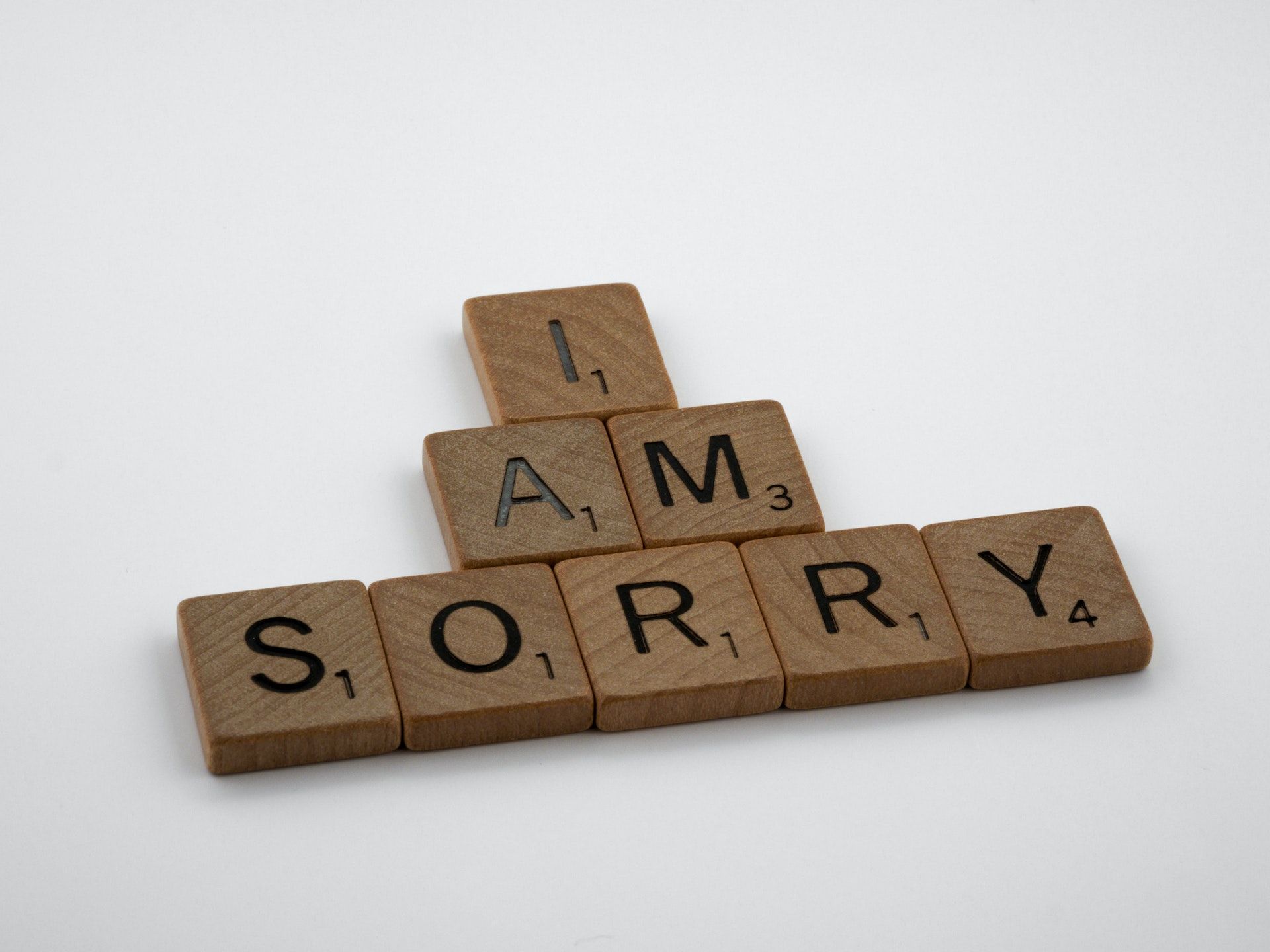How to apologize

When someone confronts us about something we've done wrong, most of us probably feel bad and find some version of the words "I didn't mean to" coming out of our mouths. For many years, if I was on the receiving end of that kind of apology, I would say, "Impact matters more than intention." I'm changing my mind about that and here's why:
First, I still think it's unhelpful to say "it wasn't my intention" when someone brings up something you've done that hurt them. For me, I'm already assuming the person didn't mean to hurt me: a) that's why I'm telling them that they did and b) I wouldn't be spending time with someone I thought was intentionally trying to hurt me. That said, saying that impact matters more than intention is dismissive and arrogant; it approaches the claim that you are the arbiter of reality and that, no matter what anyone says, you can choose to feel however you want about their words or actions and hold them accountable for that choice that they had no control over. (This is one - of many - deeply problematic and crazy-making things about those "micro-aggression" trainings that you probably have had to do at work in recent years.)
Impact does matter, and a sign of health in relationships is being able to share how someone's words or actions impact you. But your "lived experience" (to use another cultural buzz word that has been weaponized to silence certain people over others) is not reality, it is not the be-all, end-all, and it does not have the final say in interactions: and praise the Lord for that. That would be solipsism. The rampant centering of "lived experience," which is Wokespeak for moral relativism, is one of the main reasons the world feels (and IS) so crazy right now.
So, how should one apologize? In the early stages of a conversation where someone you care about has brought to your attention an action that has hurt you, the knowledge that you didn't mean to hurt them should be kept to yourself. Simply apologize for whatever you feel you can authentically own in what they've brought up. Personal responsibility has been made to be quite the villain these days, but it's extremely powerful (and necessary) for functioning relationships - and a functional society. An article in the National Law Review from November of 2018 said, "A study published in the Journal of Patient Safety and Risk Management found that hospital staff and doctors willing to discuss, apologize for and resolve adverse medical events through a “collaborative communication resolution program” experienced a significant decrease in the filing of legal claims, defense costs, liability costs and time required to close cases. In 65% of the reported adverse events, no medical errors occurred."
So just own your mistake. No excuses. No "buts." No "I didn't mean to"s. No "well, YOU..." statements. Wait for the other person to request an explanation, and be okay if they don't. This doesn't mean your intention doesn't matter. But we need to make personal responsibility cool again. If they do ask more about your side, that's when you can share what you were thinking or feeling. If they don't, you can ask if they'd like to hear it. But don't launch into it. Just offer them a clean, clear apology where you take responsibility and own what you did. That's all.
A final note: "I'm sorry you...." is not the beginning of any real apology. I know some people use "I'm sorry" to mean "I empathize" or "I have sorrow." I'd like to suggest that, when you are empathizing with or wanting to express sympathy for someone, you actually use those words instead. "I'm sorry you...." so often puts people on the defensive, sounds passive aggressive or makes it seem like you're apologizing for someone else's thoughts, feelings or actions, when really, you can only take responsibility for yourself. Despite what the Woke cult would like us to believe, we neither can control other people nor have the responsibility to speak for others, however we "identify." Sorrynotsorry, personal responsibility is real, and it's necessary for healthy relationships, personal growth and an ordered society. I get that certain cultural forces actually do not want an ordered, functional society, but that's a post for another time. For those of us that do, personal responsibility is key. And clean, clear apologies are one of our power tools.